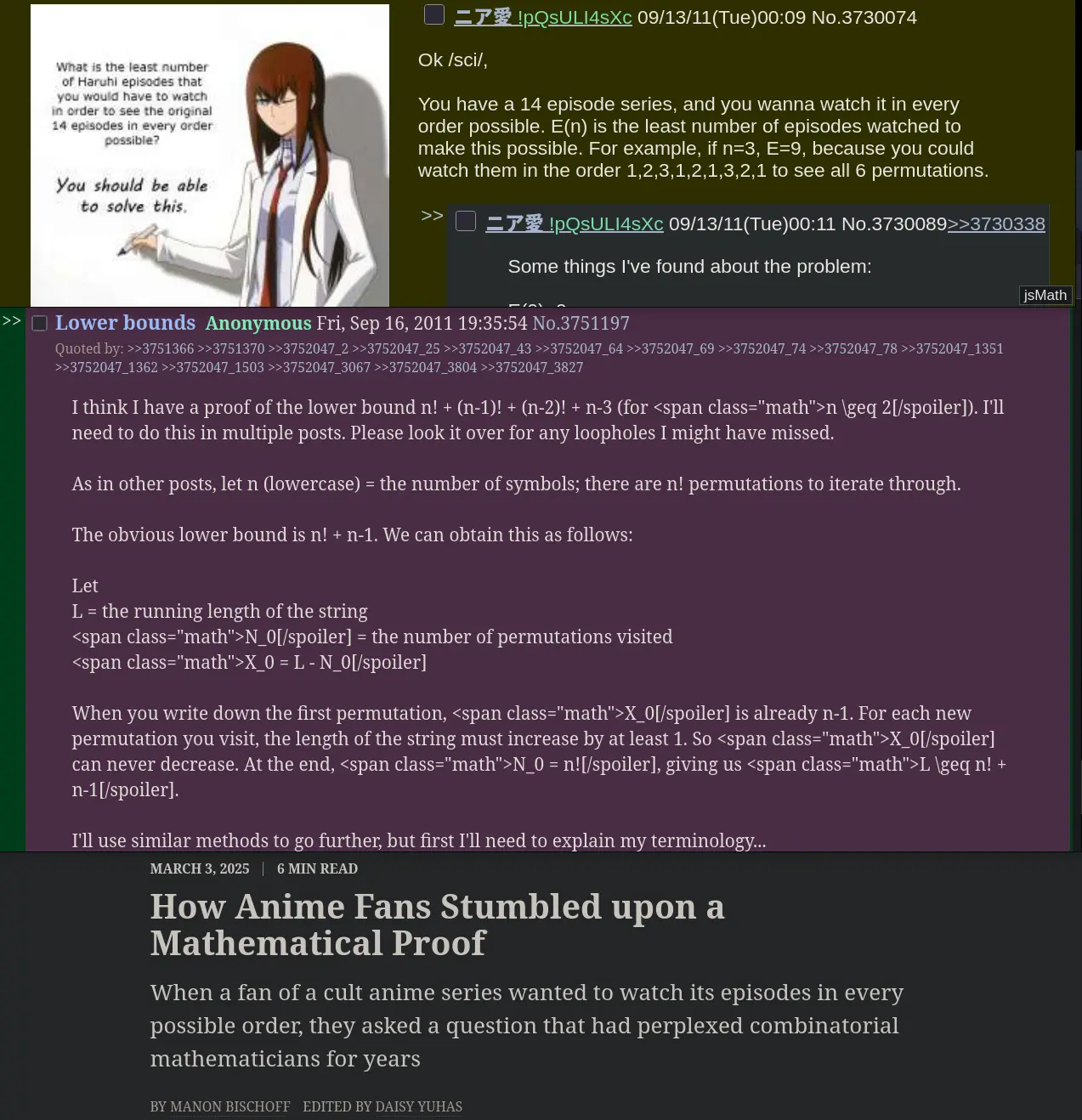this post was submitted on 07 Mar 2025
240 points (98.0% liked)
Greentext
6199 readers
1179 users here now
This is a place to share greentexts and witness the confounding life of Anon. If you're new to the Greentext community, think of it as a sort of zoo with Anon as the main attraction.
Be warned:
- Anon is often crazy.
- Anon is often depressed.
- Anon frequently shares thoughts that are immature, offensive, or incomprehensible.
If you find yourself getting angry (or god forbid, agreeing) with something Anon has said, you might be doing it wrong.
founded 2 years ago
MODERATORS
you are viewing a single comment's thread
view the rest of the comments
view the rest of the comments

Some interesting bits from the article:
Anon is credited as the first author in the paper
Since the series in question has 14 episodes, it would take 93,884,313,611 episodes to see all possible combinations. Or roughly 4 million years of non-stop viewing.
Is this number the exact result or a lower bound ?
Lower. It caught their attention because a science fiction author had come up with upper bound, which the article notes was also bizarre.
Get started anon!
But one person can only see one order. Unless you erase your memory
You can watch it again in a different order.
This is mostly about minimizing the number of viewings. So for a 3 episode series you can get order ABC and order BCA in 4 viewings instead of 6 by watching in order ABCA.
But you don't start from the beginning each time.
More of a philosophical question I suppose, not mathematical
There is not really a concept of a "true beginning" in this type of mathematics. The beginning is defined to be wherever you start.
Where does a circle start and end? Every point on a circle is both the beginning and the end of that circle. The math of permutations and combinatorials are closely related to the geometry of circles and because of that they take on a lot of similar properties. Another way to phase this question is "If I have a set of beads that are all the same size but different colors, and I want to chain multiple beads of different colors together using specific limited pallets of colors to make bracelets, what is the bracelet with the smallest size where after one rotation around the bracelet I will have seen every possible combination of the set of colors used in the pallet for that bracelet." If that sounds confusing, it's because it is.